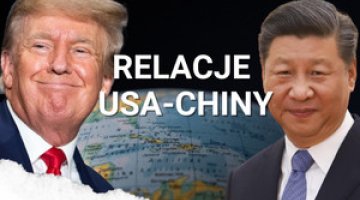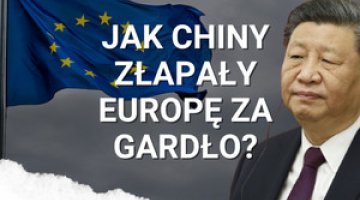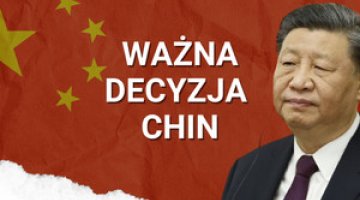A blow dealt to Europe’s defence: China steps up control of strategic exports
On 9 October, China’s Ministry of Commerce announced an expansion of oversight of foreign sales of dual-use civilian and military goods, including rare earth metals and the technologies used to produce them, advanced lithium-ion batteries, synthetic graphite anodes, and selected superhard materials. Some of the regulations are extraterritorial in nature. From 1 December, the export of products manufactured outside China, in which Chinese rare earth elements account for at least 0.1% of the value, or that were produced using Chinese technologies in this field, will be permitted only after obtaining a licence. As a rule, licences will not be granted if the final recipient is a defence company. Meanwhile, applications concerning components for advanced semiconductors (14 nm and below) and equipment for their production are to be considered on a case-by-case basis.
The list of metals subject to restrictions will be expanded to include holmium, erbium, thulium, europium, and ytterbium. Under the new regulations, Chinese citizens will also be prohibited from participating in foreign projects related to the exploration, extraction, and processing of rare earth metals or the production of magnets without prior government approval. The authorities justify the tightening of export controls on these goods and technologies by citing national security concerns, China’s national interests, and its international obligations concerning the prevention of weapons proliferation.
Beijing’s move represents a clear escalation in its economic war against the West, and the extraterritorial scope of the regulations is unprecedented for the PRC. As with the previous round of restrictions introduced in the spring, the new measures will serve as a form of economic coercion targeting the civilian industrial sectors of developed countries, while the restrictions affecting the defence industry are likely to be permanent.
Commentary
- The move strikes at the global – including European – defence industry and undermines the plans to enhance the defence capabilities of EU member states. It may slow the expansion of military capabilities in the United States and among European NATO members, and in the short term could hinder the ability to supply Ukraine. For China, it also represents a final opportunity to slow the growth of US arms production, as, under a decision by the US Congress, from 1 January 2027 no components containing rare earth metals or magnets of Chinese origin will be used in American weapons systems.
- Beijing’s actions may partly be linked to its negotiations with Washington ahead of the meeting between Xi Jinping and Donald Trump on the sidelines of the APEC summit at the turn of October and November. The authorities have decided to exert maximum pressure on the US administration – particularly by potentially restricting access to raw materials essential for the semiconductor sector – in the hope that it will yield and agree to extensive concessions. It cannot be ruled out that China may, among other things, expect political concessions, including declarations from Trump regarding Taiwan. Nevertheless, it should be assumed that some of the regulations, especially those targeting the Western defence industry, will be implemented regardless of the outcome of bilateral negotiations, as they are strategically advantageous for China. The regulations introduced by Beijing in the field of rare earth metals are analogous to US restrictions on semiconductors; however, unlike Washington’s actions, they are not directed solely at its principal rival but extend to the entire world. This makes them potentially tighter and more effective.
- Beijing’s move limits the ability to develop rare earth supply chains outside China. Governments of other countries and some global companies are attempting to diversify their sources and reduce dependence on imports from the PRC. The new regulations will hinder this process, for example, by restricting access to Chinese technologies, know-how, and components. At this stage, it is unclear how deeply the rules will interfere with supply chains. The requirement for foreign producers to obtain Chinese export licences will prompt them to reconfigure production so as to minimise regulatory burdens and avoid potential delays or prohibitions. It may also force some of them to relocate a larger share of their production to China.





